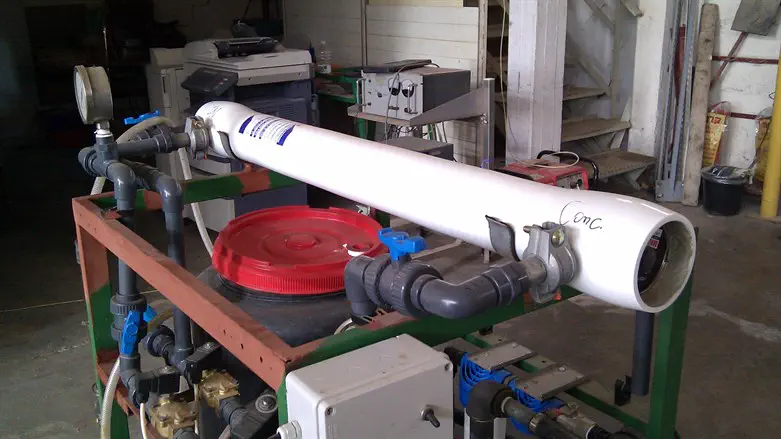
Imagine being able to grow high quality plump, ripe tomatoes or sweet bell peppers in your backyard, all while using low quality water and ensuring those veggies get exactly the nutrients they need to grow. That's exactly what a team of researchers from Ariel University has made possible, thanks to their groundbreaking innovation.
The worldwide supply of usable water has always been finite. Despite water covering 71% of the Earth's surface, less than 1% is available for us to use, as the rest is saltwater or locked up in glaciers and ice caps. This scarcity is becoming increasingly problematic as the global population grows, necessitating the use of less-than-ideal, saline water for irrigation. Unfortunately, this brackish water can harm crops and degrade the soil over time.
Currently, the most common method of treating this salty water is through a process called reverse osmosis, which is a high density (low porisity) membrane. The process filters out all the salt but also essential minerals like sulfate and magnesium that are like the vitamins of the plant world, helping them grow strong and healthy.
Ariel University's research team, led by Prof. Beni Lew and master's student Olga Tarnapolski, has found a way around this issue. They've designed a new type of membrane system, that's smart enough to filter out the harmful salts (Chloride) while leaving the beneficial ones behind.
The team put their invention to the test in the Arava region, known for its high saline water, on bell pepper crops. They used four different water types – the new membrane-filtered water, standard reverse osmosis water, regular Tel Aviv tap water, and unfiltered Arava water – for irrigation. The peppers irrigated with the new membrane-filtered water not only grew in larger quantities but also weighed more and ripened to a higher degree.
These findings, explained in layman's terms, show the potential to revolutionize how to grow high quality and quantity crops with low quality water. The research was published in leading professional journals and has been presented at various conferences.

